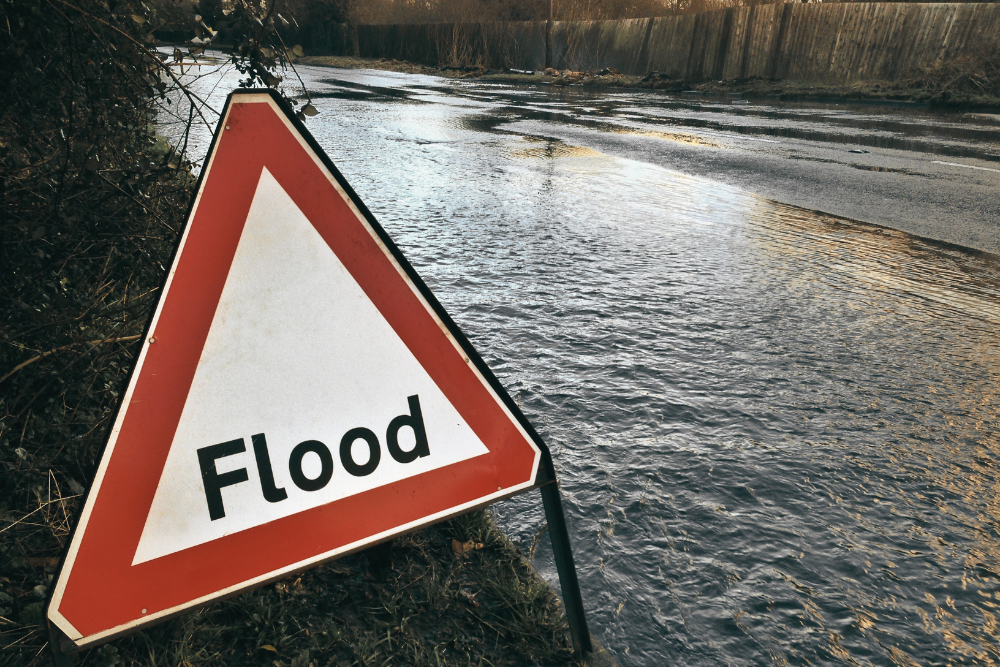New Jersey Rental Property Legalities in Flood Zones present a unique set of challenges for landlords, where coastal and inland flooding is increasingly common. These challenges go beyond the physical risks of flood damage; they also include legal responsibilities, insurance requirements, and tenant protection laws that landlords must follow to remain compliant.
The Federal Emergency Management Agency (FEMA) has designated Special Flood Hazard Areas (SFHAs), which are regions at high risk of flooding. Landlords who own rental properties in these zones must comply with disclosure laws, maintain adequate insurance, and ensure tenant safety during flood-related emergencies. Failing to do so can lead to legal liabilities, financial losses, and potential tenant lawsuits.
This guide will walk you through everything you need to know about renting out property in flood-prone areas, including:
- How to determine if your rental property is in a flood zone
- Legal disclosure requirements for landlords
- Flood insurance mandates and coverage options
- Tenant rights and landlord responsibilities in flood-related situations
- Strategies to mitigate flood risks and reduce legal liability
Understanding these legalities is crucial for protecting your property, finances, and reputation as a landlord. Let’s dive into the specifics.
How to Determine If Your Rental Property Is in a Flood Zone
1. Using FEMA’s Flood Maps to Assess Risk
The first step in ensuring compliance with flood-related landlord regulations is determining whether your rental property is located in a flood zone. FEMA’s Flood Insurance Rate Maps (FIRMs) provide an easy way to assess flood risk in a given area.
To check your property’s flood risk:
1. Visit the FEMA Flood Map Service Center
2. Enter your property address and review its flood designation.
3. Check if the property falls under Special Flood Hazard Areas (SFHAs). These are zones with a 1% annual chance of flooding (also known as 100-year flood zones).
Properties in high-risk flood zones (Zone A, AE, V, VE, and AO) require special flood insurance and compliance with additional building regulations.
2. Checking New Jersey’s State-Level Flood Hazard Maps
While FEMA provides national flood data, New Jersey has state-specific resources that landlords can use for a more detailed flood risk assessment.
- New Jersey Flood Mapper
- New Jersey Department of Environmental Protection (NJDEP) Flood Hazard Area Control Act
These tools provide localized flood risk data and regulatory guidelines that landlords must adhere to when renting properties in flood-prone areas.
Legal Responsibilities of Landlords in Flood Zones
1. Disclosing Flood Risks to Tenants: What New Jersey Law Requires
Tenants have the right to know if they are renting a property in a flood-prone area. New Jersey law requires landlords to disclose flood risks before a lease is signed. This means providing tenants with written notice if:
- The property is in a FEMA-designated Special Flood Hazard Area (SFHA).
- The property has experienced flooding in the past.
- The tenant is required to obtain flood insurance for personal belongings.
How to Stay Compliant:
- Include a Flood Zone Disclosure Addendum in lease agreements.
- Provide FEMA floodplain data or refer tenants to the NJ Flood Mapper for verification.
- Educate tenants on flood preparedness, evacuation plans, and emergency contacts.
Failure to disclose flood risks can lead to legal claims for damages if a tenant’s property is destroyed due to an unexpected flood event.
2. Ensuring Rental Property Meets Flood Safety Standards
Properties in high-risk flood zones must be built or modified to withstand flooding events. This is regulated by:
- FEMA’s National Flood Insurance Program (NFIP)
- New Jersey’s Flood Hazard Area Control Act
- Rental units must comply with base flood elevation (BFE) requirements.
- Electrical and HVAC systems should be installed above flood-prone levels.
- Ground-level apartments may need flood-resistant construction materials.
Landlord Tip: If your rental property is not compliant, you may be required to retrofit it with elevated foundations, flood barriers, or additional drainage systems.
Flood Insurance Requirements for Landlords
Why Standard Landlord Insurance Does Not Cover Floods
Most standard landlord insurance policies DO NOT cover flood damage. If your rental property is in a Special Flood Hazard Area (SFHA), you are legally required to carry flood insurance through:
- FEMA’s National Flood Insurance Program (NFIP)
- Private flood insurance companies (which may offer higher coverage limits than NFIP).
Without flood insurance, landlords risk paying out-of-pocket for flood damage and losing rental income while repairs are made.
Tenant Rights and Landlord Responsibilities After a Flood
1. Can Tenants Break a Lease Due to Flooding?
If a flood renders a rental unit uninhabitable, tenants may have the right to:
- Terminate the lease early without penalties.
- Request temporary relocation assistance if required by law.
- Withhold rent until essential repairs are completed.
Landlord Tip: Clearly outline flood-related lease termination policies in rental agreements to avoid disputes.
2. Who Is Responsible for Flood Damage Repairs?
- Landlords must repair structural damage, plumbing, and electrical issues.
- Tenants are responsible for personal belongings unless otherwise specified.
- If mold develops after a flood, landlords must ensure proper remediation.
Failure to address flood-related repairs promptly could lead to tenant lawsuits or government fines.
New Jersey Rental Property Legalities in Flood Zones and High-Risk Areas, How We Can Help
Managing rental properties in flood-prone areas comes with complex legal challenges. At Sammarro & Zalarick PA, we help landlords:
- Draft legally compliant lease agreements with flood disclosures.
- Defend against tenant lawsuits related to flood damage.
- Ensure compliance with flood zone building regulations.
- Handle eviction cases after flood-related lease disputes.

